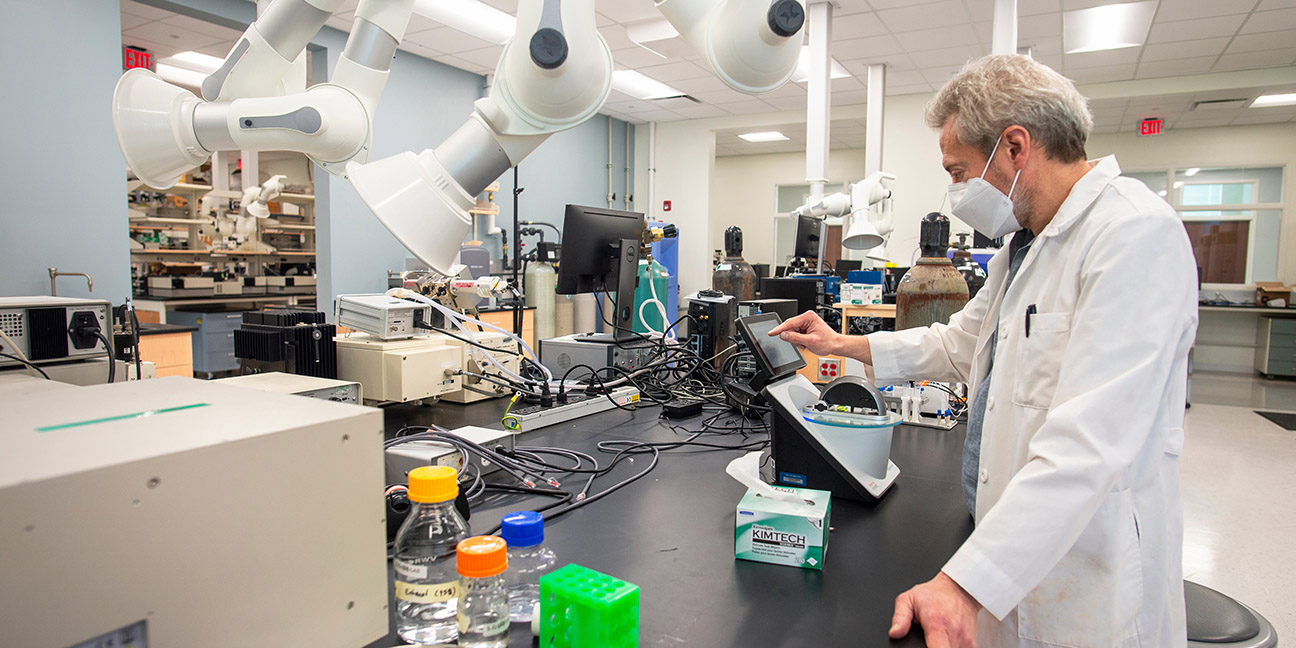Oceanography, B.S.
Study the physical, chemical and biological features of the ocean
Geography, B.S.
Focus on the technical and environmental aspects of geography
Environmental Science, B.A.
Prepare for a career in environmental policy
Geologists teach at the high school, community college and university levels to train future professionals in geological subdisciplines and educate the public about the role of geology in our lives.
Geologists combine scientific knowledge, familiarity with regulatory requirements and technical expertise to conduct environmental assessments, identify and minimize risks resulting in legal action or fines, ensure compliance with current law and preserve health and safety.
Geologists provide data to, and work with, engineers to evaluate the Earth materials using the principles of soil and rock mechanics for the solutions to engineering problems. Scientists rely on knowledge of geology, hydrology, geophysics and other related sciences.
Geologists work for State Geological Surveys, the U.S. Geological Survey, National Forest Service and Bureau of Land Management conducting research, creating geologic maps and interfacing with the public.
Geologists collect groundwater information such as water level, water quality and contamination data and develop groundwater models to trace groundwater contamination and determine sustainable water extraction amounts.


Understand and be able to apply the scientific method to geologic problems
Critically read, logically evaluate and effectively communicate geological data, problems and issues
Identify and describe common rocks and minerals and processes that form and later basic Earth materials
Analyze and interpret geological data in both laboratory and field settings
Study the physical, chemical and biological features of the ocean
Focus on the technical and environmental aspects of geography
Prepare for a career in environmental policy
Aimed at preparing the student to take on leadership roles in the development and implementation of computer and information systems.
A collaborative effort between departments, the larger academic community and the business community that emphasizes computational-based applications of traditional data analysis methods as well as current trends in data mining and machine learning.
Provides students the opportunity to gain skills and knowledge from educational and applied psychology, instructional systems design, computer science, systems theory, and communication theory.